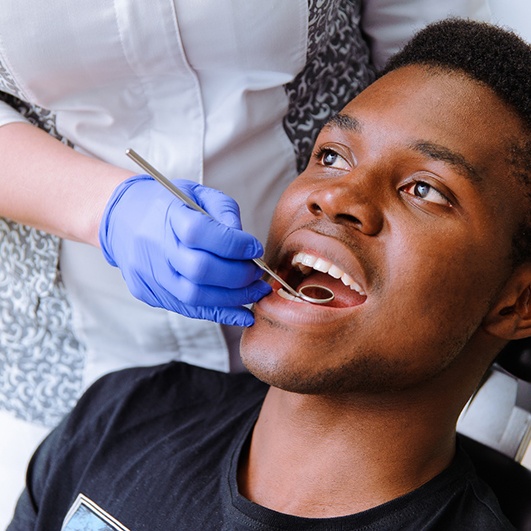Before you get to the dental office, it’s important that you make sure that your teeth do not break down anymore and that you do whatever you can to manage dental pain during your emergency. Of course, this is only half the battle. It’s easier to stay calm when you know the right steps for handling your dental emergency. Below, you can learn some of these steps that help you address different types of emergencies ahead of your dental appointment.
Because no two smiles are exactly alike, there is no fixed cost of emergency dentistry in Eatontown. The price of your appointment will most likely be higher than that of a typical checkup and cleaning, but it will of course depend on which treatment(s) you’ll need. Our team accepts most dental insurance plans and can provide you with additional options of fitting your care into your budget.
Read More
Every Dental Emergency is Different

When a dental emergency occurs, one of our doctors and the rest of our team will assess the situation. Our focus will be to get you out of pain before discussing your treatment options and their associated fees. Because every dental emergency is different, it’s impossible for us to give you a cost estimate unless you come in for an exam. Rest assured that our team will go over your treatment plan in detail and ensure you’re comfortable with the costs before going through with any procedures.
Caring for Your Smile Can Save You Money
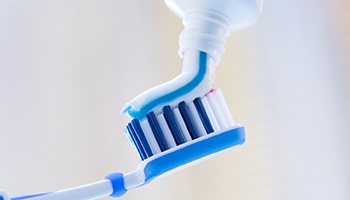
Some dental emergencies are the result of sudden falls or sports-related injuries. In reality, however, most dental emergencies can be prevented. How so? By regularly brushing, flossing, and visiting us for checkups and cleanings, you could end up saving thousands of dollars in emergency dental care costs over the years!
Another way to save money is to contact an emergency dentist in Eatontown as soon as you notice something in your mouth is amiss. You should never put off care for a dental emergency. The longer you wait to get it handled, the more likely your issue will worsen – causing more pain and resulting in higher dental bills.
Does Dental Insurance Cover Dental Emergencies?
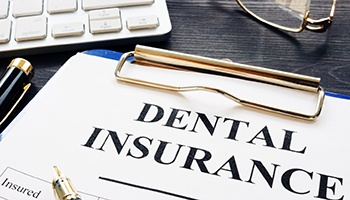
You’ll be happy to know that the majority of dental insurance plans cover emergency care to some degree. Many of them fully cover one emergency exam per year as needed. Additionally, most of them provide partial coverage (usually 50% to 80%) for services commonly associated with hurting teeth, like dental crowns and root canal therapy.
However, everyone’s policy is different, and your benefits may vary. Our team at NU Dental Eatontown can make the dental insurance process easier by filing your claims on your behalf. We’re even in-network with many of the nation’s leading insurance providers.
Other Options for Making Dental Emergencies Affordable
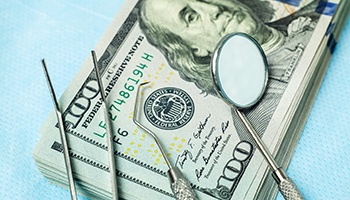
If you’re uninsured, or need a bit of extra help covering your emergency care costs, our team is here to help. One popular option is to split up the cost of your treatment into smaller, monthly installments through the trusted third-party financing company CareCredit. Their plans tend to come with very little or even zero interest!
As an alternative to traditional insurance, we offer our own in-house membership plan. For a set annual fee, you can receive significant discounts on most of our services. Plus, your preventive care will be fully covered, which can help you prevent dental emergencies in the first place!
By their very nature, it’s impossible to ensure that you never experience a dental emergency again. There are, however, certain precautions you can take to greatly decrease your risk. If, for example, you play contact sports or suffer from chronic teeth grinding (also called bruxism), you should protect your teeth from potential injury by wearing a mouthguard. For more tips on how to prevent dental emergencies in Eatontown, keep reading below.
Read More
Visit Your Dentist Regularly

When it comes to avoiding two major causes of painful dental emergencies – tooth decay and gum disease – one of the easiest things you can do is visit our office twice a year for routine dental checkups and cleanings. At these appointments, one of our doctors will closely examine your mouth, identify any problem areas, and treat them before they worsen into full-blown emergencies.
Maintain Good Oral Hygiene Habits at Home
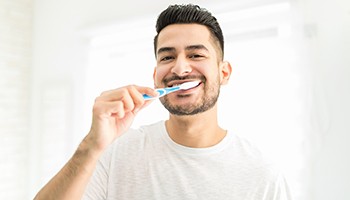
As important as it is to get your teeth professionally cleaned every six months, you’ll also need to keep your mouth clean in between appointments. To minimize your risk of cavities and infections, be sure to:
- Brush your teeth twice per day for two minutes at a time.
- Use a fluoridated toothpaste to strengthen your enamel and combat cavities.
- Floss at least once a day.
- Rinse with an antibacterial mouthwash on a regular basis.
Stick to a Nutritious Diet

Consuming too much sugar and starch gives harmful oral bacteria the fuel they need to cause cavities. Munching on extremely hard foods could chip or crack your teeth. If you want to reduce the chance that you’ll need to make a sudden trip to our emergency dental office in Eatontown, switch to healthier alternatives like leafy greens, calcium-rich dairy products, and lean proteins.
Wear a Mouthguard

If you’re an athlete or you habitually grind your teeth while sleeping, consider wearing a mouthguard. These personalized oral appliances fit comfortably over the teeth and prevent the top and bottom arches from making harmful contact. They also severely lessen the impact of injuries should you receive a blow to the face during a sports game or practice.
Use Tools, Not Teeth to Open Packaging

Tooth enamel is the hardest material in the human body – it’s even harder than bone! However, that doesn’t mean they’re impervious to breakage. The only thing your teeth are designed to do is eat. Using them to open packaging or containers can weaken your enamel and lead to fractures. To avoid making a painful mishap, take a little time to reach for the proper tool for the job.
What Is Considered a Dental Emergency?
Minor discomfort in the mouth is relatively common, so how can you tell the difference between a harmless annoyance and an actual emergency situation? Here are some signs that you have a true dental emergency on your hands:
- Bleeding
- Persistent, intense pain
- Broken or loose teeth
- Teeth that have been partially or fully knocked out
- Facial swelling
- Loose fillings or dental crowns
No matter the type of oral health problem you’re experiencing, our doctors are qualified emergency dentists who can restore your smile.
Should I Go to the Hospital for a Dental Emergency?
Dental emergencies can be scary. Your first thought might be to go to the emergency room of the nearest hospital; however, ER doctors are typically not equipped to handle the root causes of specific dental health problems. At most, they could prescribe painkillers or antibiotics. You can save valuable time and money by contacting our office straight away for your dental emergency.
The only exception would be if you’re experiencing excessive swelling, a fractured or dislocated jaw, or severe bleeding that will not stop. In those situations, seek immediate medical attention and then call us afterward to find out if any additional dental treatment is needed.
Should I Still Call a Dentist If My Toothache Goes Away?
Yes! Just because your tooth is no longer hurting doesn’t necessarily mean the problem resolved itself. In fact, the opposite is usually true. An intense toothache is often caused by decay or infection that has reached the nerves at the tooth’s center. If your tooth stops hurting, the bacteria may have damaged the nerves to the point that they no longer register pain. If this occurs, you’ll likely need a root canal to avoid the need for a tooth extraction. To preserve as much of your natural smile as possible, give your dentist a call even if your toothache goes away.
How Can I Prepare for Future Dental Emergencies?
No one ever expects a dental emergency to happen to them until it does. While you can certainly minimize your risk of these problems occurring, it’s impossible to prevent them entirely. That’s why it’s important to plan ahead by assembling a small first aid kit specially designed to handle dental injuries or pain.
We recommend making a few dental emergency kits and storing them in easily accessible places, such as your car’s glove compartment, your medicine cabinet at home, or even your desk drawer at work. Be sure to include:
- Our contact information
- Small container with a lid that can be tightly sealed
- Gauze pads
- Handkerchief
- Latex-free disposable gloves
- Small bottle of acetaminophen
Will my toothache go away on its own?
Patients are often hopeful that – if given enough time – their tooth will heal on its own. Unfortunately, postponing the essential restorative care you need will only allow the root of the problem to progress. For that reason, we recommend scheduling an appointment with our Eatontown emergency dentist when your symptoms first surface. That way, they can pinpoint and treat the root of the problem as early as possible, hopefully in time to save your tooth.
What does throbbing tooth pain mean?
Throbbing tooth pain is a symptom that could be the result of everything from a small cavity to a large crack. In both cases, it’s bad news. Don’t worry – you can turn to our gentle, caring, and experienced dental team for help. In addition to completing a comprehensive oral exam, we will take the time to explain our findings, share our recommendations, and answer any questions you have. That way, you don’t feel left in the dark, rushed, or pressured. Remember, we want you to have a positive and comfortable experience at our office!
My chipped tooth doesn’t hurt. Do I still need to visit?
There’s a common misconception that pain is the only indicator that you need to visit your emergency dentist. That’s not the case! Chipped teeth are a perfect example because – even if they don’t hurt – they can lead to infections and further damage. So, it’s best to reach out to us when you first notice the chip. We’ll schedule an appointment for you before the end of the week (or the same-day, if necessary) and provide you with helpful tips on how to care for your tooth in the meantime.
Can superglue be used to repair broken dentures?
There’s one main reason that superglue shouldn’t be used to repair broken dentures: this adhesive contains toxins that are not safe to ingest. If you find yourself with a damaged restoration, the best thing to do is schedule an appointment with us and do what you can to protect it in the meantime, like putting it in a small, clean container.
What does chronic bad breath mean?
Are you self-conscious about your breath because it often smells? If so, try adjusting your diet. After all, garlic, fish, onions, and the like can all linger, even after brushing and flossing your teeth. It’s also a good idea to examine your oral hygiene regimen and keep sugar-free gum or breath mints on hand. If you’ve tried everything but nothing seems to work, then come in for a visit so we can determine if tooth decay, gum disease, or something similar is the root of the problem.
What is causing my jaw pain?
Does your jaw pain seem to be the worst in the morning? Then there’s a chance that you’re grinding or clenching your teeth at night and need a nightguard. If you’re between the ages of 16 and 25, then the root of the problem is likely something else: your wisdom teeth. Ultimately, we can’t say for sure what’s causing your jaw pain until you come in for an exam.


 (732) 863-3899
(732) 863-3899





